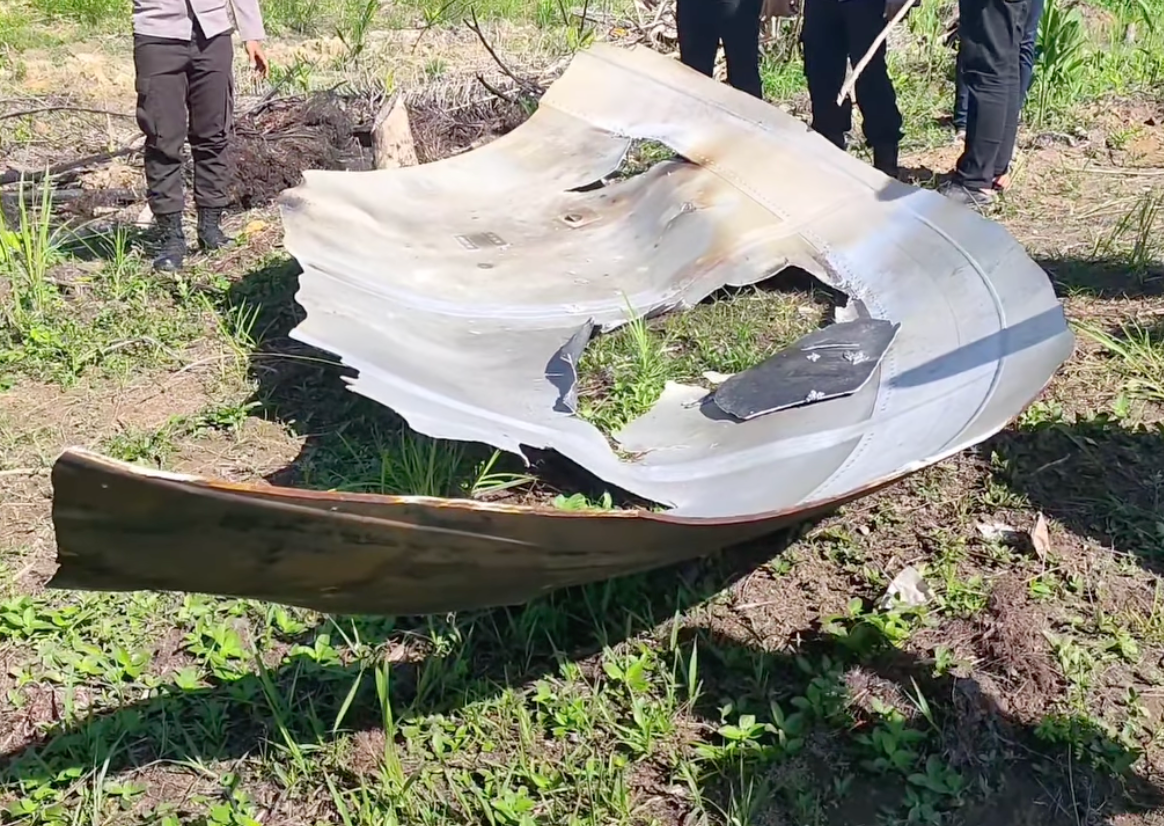Huge chunks of rocket fall from sky after Chinese spacecraft goes out of control

Your support helps us to tell the story
From reproductive rights to climate change to Big Tech, The Independent is on the ground when the story is developing. Whether it's investigating the financials of Elon Musk's pro-Trump PAC or producing our latest documentary, 'The A Word', which shines a light on the American women fighting for reproductive rights, we know how important it is to parse out the facts from the messaging.
At such a critical moment in US history, we need reporters on the ground. Your donation allows us to keep sending journalists to speak to both sides of the story.
The Independent is trusted by Americans across the entire political spectrum. And unlike many other quality news outlets, we choose not to lock Americans out of our reporting and analysis with paywalls. We believe quality journalism should be available to everyone, paid for by those who can afford it.
Your support makes all the difference.Huge chunks of spacecraft appear to have fallen from the sky, according to local reports.
The pieces seem to be part of China’s Long March 5B rocket, which the Chinese lost control of soon after it was launched last month. Over the weekend it plunged back down to Earth, with experts warning that the chances of it causing injury or damage were low but much higher than they should be.
Now parts of the rocket appear to have fallen on Borneo, local reports claimed. While they are still unconfirmed, and have not been definitively linked with the Chinese rocket, they appear to be right beneath the area the rocket was expected to fall to Earth.
Local media showed pictures of a large chunk of metal that appeared to have fallen in a field. Although there are no reports of significant damage or any injuries, the size of the debris suggests that it would have posed a substantial risk to anybody nearby.
Jonathan McDowell, an astronomer at the Centre for Astrophysics who tracks space objects, noted that the debris was “near villages”. In a tweet, he wrote: “A few hundred metres either way could have been a different story.”
China announced on Sunday that the object had fallen into the sea in the Philippines. But the debris was probably spread relatively widely, and the announcement gave limited information on what had happened.
Most of the final stage of the Long March-5B rocket burned up after entering the atmosphere, the China Manned Space agency reported. The agency said earlier that the booster would be allowed to fall unguided.
The announcement gave no details about whether remaining debris fell on land or in sea, but said the “landing area” was at 119 degrees east, 9.1 degrees north. That is in waters south-east of the Philippine city of Puerto Princesa, on the island of Palawan.
There was no immediate word from Philippine authorities about whether anyone on the ground was affected.
China has faced criticism for allowing rocket stages to fall to Earth in an uncontrolled way twice before.
Nasa accused Beijing last year of “failing to meet responsible standards regarding their space debris” after parts of a Chinese rocket landed in the Indian Ocean.
The country’s first space station, Tiangong-1, crashed into the Pacific Ocean in 2016 after Beijing confirmed it had lost control. An 18-tonne rocket fell in an uncontrolled fashion in May 2020.
China also faced criticism after using a missile to destroy one of its defunct weather satellites in 2007, creating a field of debris that other governments said might jeopardise other satellites.
The 24 July launch of the Long March-5B, China’s most powerful rocket, carried the Wentian laboratory into orbit. It was attached to the Tianhe main module, where three astronauts live, yesterday.
Additional reporting by Press Association
Join our commenting forum
Join thought-provoking conversations, follow other Independent readers and see their replies
Comments